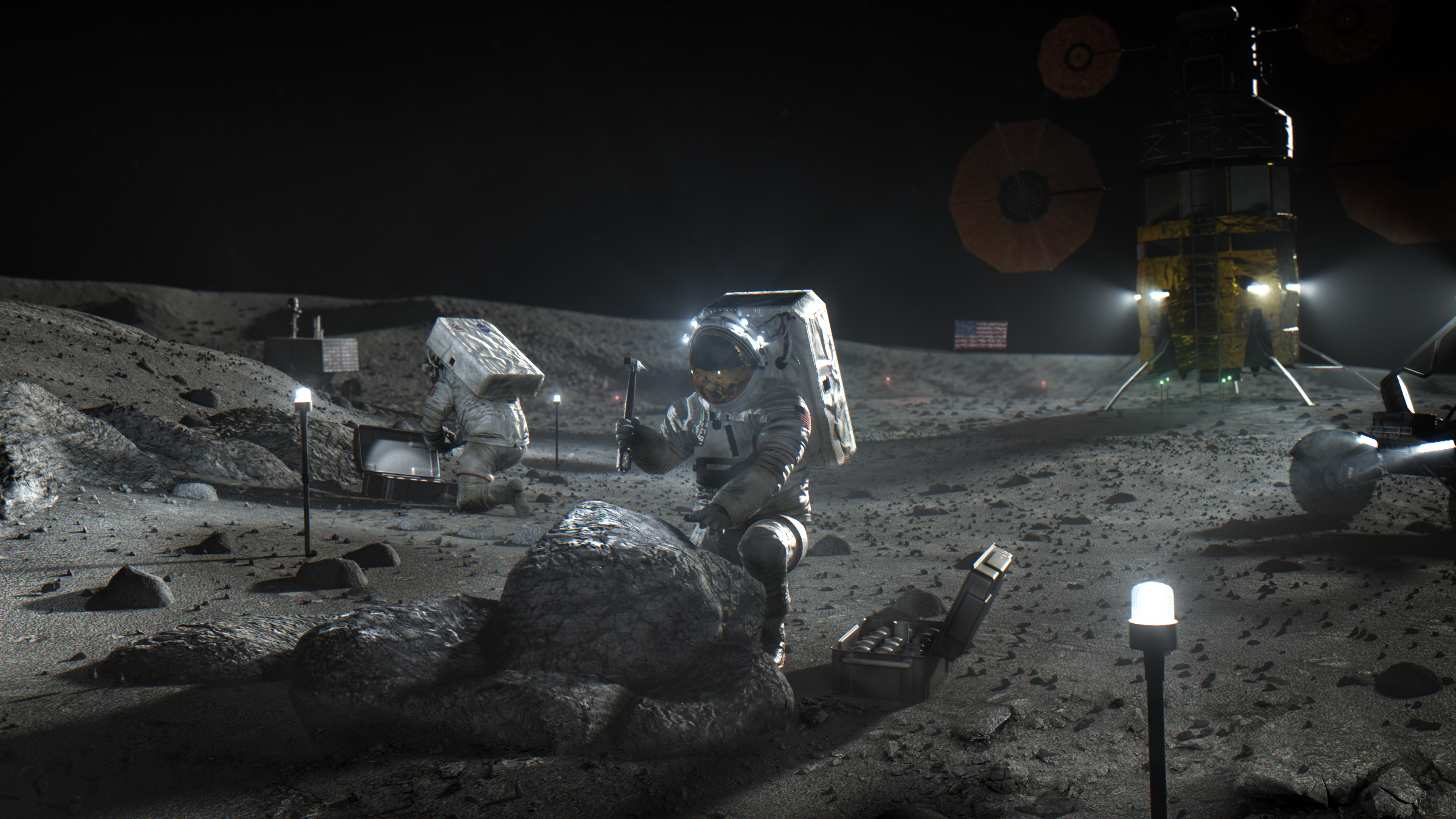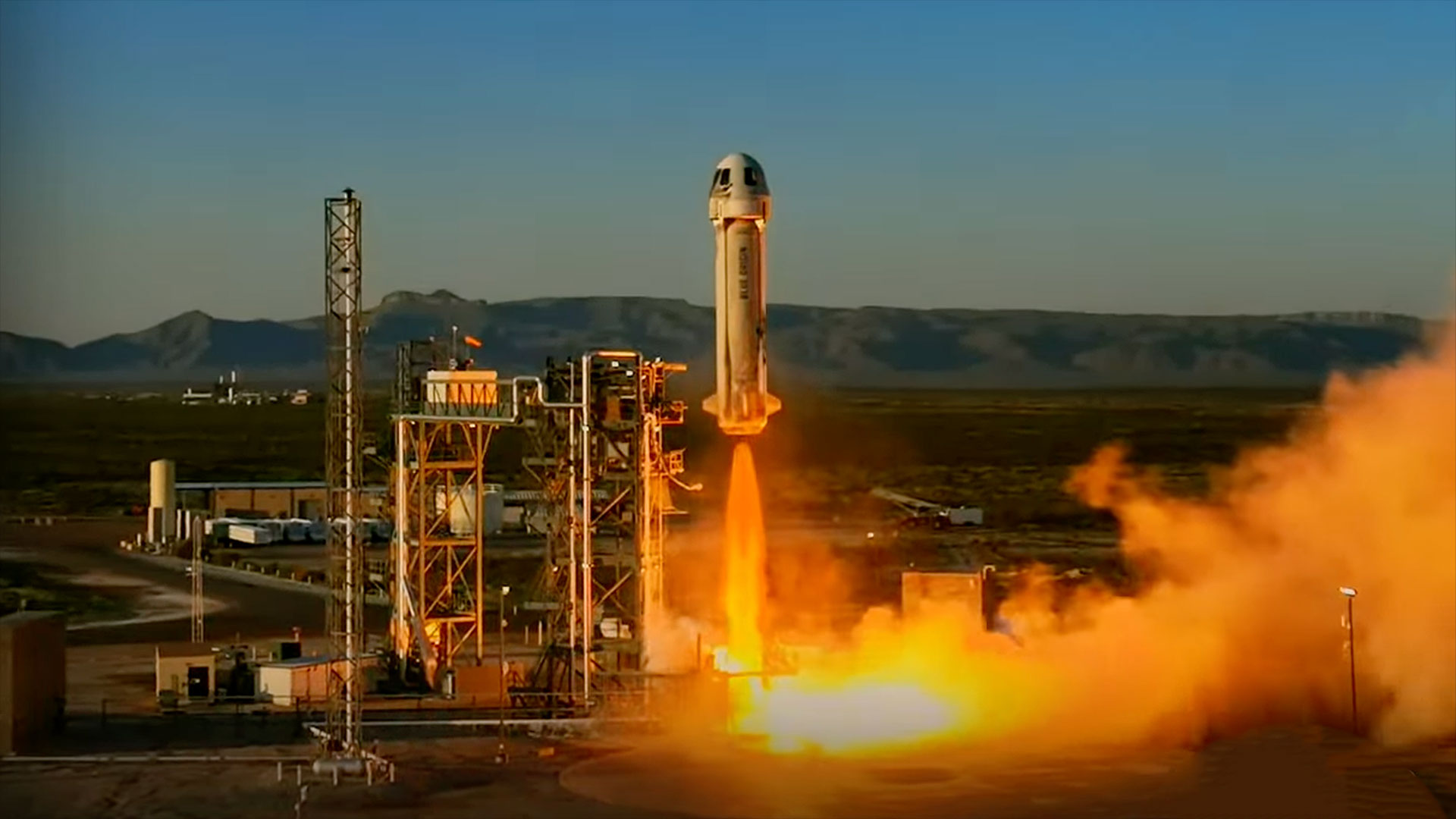Senate directs NASA to choose another company to build a lunar lander: report

The United States Senate's largest committee wants NASA to choose a second company to build its new moon lander.
In April of this year, NASA announced that SpaceX alone had won the contract to build the agency's next moon lander for its Artemis program, which aims to return humans to the moon's surface by 2024 and create a sustainable human presence on our nearby satellite. This came as a surprise as many expected the agency to choose two of the three companies vying for the contract to keep them competitive and to have a backup built.
After much legal back-and-forth following NASA's original decision, the Senate Appropriations Committee is directing NASA to now choose a second company to develop a crewed lunar lander, according to SpaceNews. However, this direction came with only a small funding increase.
Related: NASA halts human moon lander work with SpaceX amid Blue Origin lawsuit
NASA's original decision to grant this contract to build and develop a lunar lander, or Human Landing System (HLS), to only SpaceX was met with staunch protest from the other two companies in the running at the time: Blue Origin and Dynetics. In fact, they filed formal protests against the decision trying to get the agency to reconsider and add a second company; Blue Origin founder Jeff Bezos even wrote an open letter to NASA Administrator Bill Nelson to request a contract, offering to cover up to $2 billion of the cost. This did not work and the company went on to file a federal lawsuit against NASA for their decision, a legal choice that put HLS development temporarily on hold.
But it seems that Blue Origin may get its wish after all. On Tuesday (Oct. 18), the Senate Appropriations Committee — the largest U.S. Senate committee that oversees all discretionary spending legislation in the Senate — released a draft report of nine appropriations bills for the fiscal year 2022 which included funding for NASA, according to SpaceNews.
The appropriators, in the report, state that NASA's HLS program is not underfunded, despite the agency's previous claims to the contrary. As shown in the report, the bill includes $24.83 billion for NASA, which is just slightly more than the $24.8 billion that NASA requested, and a $100 million increase in funding for HLS.
Breaking space news, the latest updates on rocket launches, skywatching events and more!
"NASA's rhetoric of blaming Congress and this Committee for the lack of resources needed to support two HLS teams rings hollow," the report states. The committee added that "having at least two teams providing services using the Gateway should be the end goal of the current development program," referencing NASA's Gateway, a planned lunar space station.
In discussing the slight increase in funds for HLS, the report continues to say that "using this funding, NASA is expected to ensure redundancy and competition, including robust support for research, development, testing, and evaluation for no fewer than two HLS teams."
The report directs NASA to give Congress a plan showing how it will bring in a second HLS team and support them through the Artemis program. This means that NASA's plan, which the agency will have to deliver to Congress within 30 days of the bill becoming law, will have to include budget projections for the next few years, through 2026, according to SpaceNews.
While NASA will have to figure out how to make this small budgetary increase stretch for two HLS contracts, Administrator Nelson has previously stated his confidence in NASA's ability to secure the funding from Congress necessary to support a second lunar lander contract. He has also shared his optimism for the agency's future overall, despite budgetary challenges as well as difficulties that arose with the COVID-19 pandemic.
Email Chelsea Gohd at cgohd@space.com or follow her on Twitter @chelsea_gohd. Follow us on Twitter @Spacedotcom and on Facebook.

Chelsea “Foxanne” Gohd joined Space.com in 2018 and is now a Senior Writer, writing about everything from climate change to planetary science and human spaceflight in both articles and on-camera in videos. With a degree in Public Health and biological sciences, Chelsea has written and worked for institutions including the American Museum of Natural History, Scientific American, Discover Magazine Blog, Astronomy Magazine and Live Science. When not writing, editing or filming something space-y, Chelsea "Foxanne" Gohd is writing music and performing as Foxanne, even launching a song to space in 2021 with Inspiration4. You can follow her on Twitter @chelsea_gohd and @foxannemusic.
